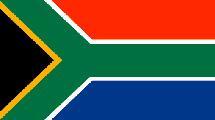By Busani Ngcaweni
Over the next few years SA will work towards doubling international tourist arrivals to about 21-million by 2030
The National Development Plan recognises tourism as a key driver of employment, economic growth and the national transformation agenda. Tourism is also a priority of the government.
Growing our tourism market depends on attracting more tourists, both locally and internationally, while also developing small businesses.
More tourists equals more jobs and economic growth in communities. By attracting more visitors, we can ensure that more people are employed as tourist guides, drivers or caterers. It will also lead to an increase in local manufacturing of items such as artefacts and the creation of guest houses, lodges and small hotels.
However, tourism is a burgeoning industry throughout the world and SA faces competition from other destinations around the globe. The reality is that tourists are spoilt for choice and will choose destinations that are easy to access, offer value for money and are safe.
SA is therefore working to reduce bureaucratic red tape to make it easier for tourists to travel, and this includes simplifying our tourist visa regimes. The introduction of an e-visa system promises to be a game-changer and will create a seamless travel experience for visitors.
These proposed changes dovetail with existing waivers of visas for travellers from selected countries.
Other changes already in place, such as simplified visa requirements for China and India, including interventions such as five-year multiple entry visas, will further unlock these two big markets.
As part of responsive public policy formulation, the government is in the process of implementing three-year entry visas for frequent travellers such as tourists, business people attending business meetings and academics on exchange programmes. This, along with the department of home affairs introducing a biometric movement control system for ports of entry such as airports and land border posts, will help to ensure easier travel into the country.
Ultimately, these and other interventions will boost the number of visitors we receive in our country every year. Over the next few years SA will work towards doubling international tourist arrivals to about 21-million by 2030.
The report by Stats SA on tourism and migration, released two weeks ago, shows that in April just over 3.5-million travellers (arrivals, departures and transits) passed through SA’s ports of entry: a little more than 1million SA residents and just over 2.5-million foreign travellers. Yes, when we flock to eThekwini for the July
horse racing event, we are recorded as tourists as we contribute to the sustainability of the hospitality industry.
Apart from mavuso (the transactional sex money that flows during the Durban July), all the money we spend around this national event is recorded as revenue from domestic tourism activities. The same goes for money spent on events such as the Cape Town International Jazz Festival and the Sama Awards.
The Stats SA report reaffirms that our travel and tourism market is a good story to tell given the thousands of sustainable jobs that are being created. Given this trend, Stats SA projects that by 2026 the number of direct jobs created by tourism will reach 1-million, and over 2.26-million total jobs will be supported by the sector.
We should not lose sight of the fact that the domestic market is the backbone of our industry and by cultivating a local culture of tourism we aim to grow this market even further. In fact, another dimension of the EFF story of checking in at a foreign owned establishment in Cape Town during the State Of The Nation Address is part of the tourism success story of Cape Town. Expensive champagne, countless condoms and designer clothes notwithstanding, Stats SA will count their contribution to tourism in 2020.
If we succeed in achieving the tourism growth targets set by President Cyril Ramaphosa during the state of the nation address, we will make a significant difference in tackling unemployment. Tourism has massive potential to create much-needed jobs that can power and grow our economy. We also need to ensure the industry benefits all South Africans and should serve as a catalyst for rural development, job creation, the growth of SMMEs and the nurturing of new skills.
Places such as Soweto are already showing the way, with local and international tourists patronising the township. The challenge for new tourism Minister Mammoko Kubayi-Ngubane is to support other townships and rural areas such as my hood, Inanda, where we have heritage to offer in the form of the Pixley ka Isaka Seme, John Langalibalele Dube, Isaiah Shembe and Gandhi memorials.
● Busani Ngcaweni is Head of Policy and Research services in The Presidency.





